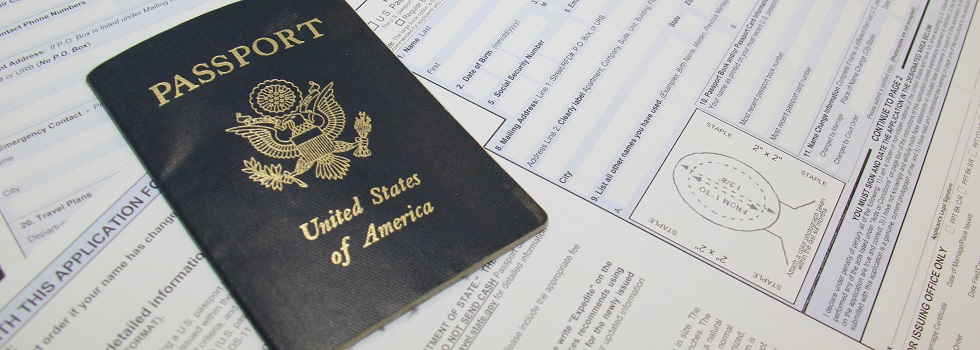Applying for a passport means accounting for every name you have used, including nicknames, maiden names, and legal name changes.
Listing all your previous names ensures an accurate identity verification process.
If you’re short on time, here’s a quick answer: You must list any other first, middle, or last names you currently use or have ever used on passport applications, including maiden names, and married names.
This comprehensive guide will outline the name requirements for U.S. passport applications.
We’ll cover which names to include from life events like marriage, divorce, and adoption, as well as variations like professional stage names.
Why Naming Accuracy Matters for Passports
When it comes to passport applications, accuracy in naming is of utmost importance. This is because passports are official government documents that serve as proof of identity and nationality.
Any errors or inconsistencies in the names listed on a passport application can lead to a range of issues, from delays and rejections to more serious consequences at borders and airports.
Verifying identity
One of the primary reasons why naming accuracy matters for passports is to ensure the verification of the applicant’s identity.
Passports are used as a means of identification when traveling internationally, and the information provided on the application must match the applicant’s other official documents, such as their birth certificate or driver’s license.
Inaccurate or inconsistent names can raise suspicion and result in additional scrutiny or even denial of entry.
It is crucial to double-check and verify the spelling of names, including any special characters or accents, to ensure they are accurately recorded on the passport application.
This can help prevent any potential confusion or discrepancies that may arise during the verification process.
Avoiding issues at borders and airports
Another important reason for naming accuracy on passport applications is to avoid any issues or complications when crossing borders or going through airport security.
Immigration officials have strict guidelines and procedures in place to ensure the safety and security of travelers.
Inconsistencies or errors in the names listed on the passport can trigger suspicion and lead to delays or further investigations.
Having accurate and consistent names on the passport application helps streamline the immigration process and minimizes the risk of encountering difficulties while traveling.
It is worth noting that certain countries have specific requirements for passport names, such as the order of given names and surnames.
Familiarizing oneself with these requirements and following them precisely can help avoid any unnecessary complications.
Whose Names to Include
When filling out a passport application, it is important to provide accurate and up-to-date information. This includes listing any other names you may have used in the past.
Here are the different types of names you may need to include:
Current legal name
Your current legal name is the name that appears on your official identification documents, such as your driver’s license or birth certificate.
It is important to provide this name exactly as it appears on these documents to avoid any discrepancies.
If you have legally changed your name, make sure to include the necessary documentation to support the change.
Birth name
Your birth name is the name you were given at birth. If you have legally changed your name since birth, you may still need to provide your birth name on the passport application.
This helps establish your identity and ensures that your passport is linked to your original identity.
Married names
If you have been married and have taken your spouse’s last name, it is important to include your married name on the passport application.
This is particularly important if you plan to travel using your married name.
Be sure to provide any necessary supporting documentation, such as a marriage certificate, to verify the name change.
Divorced names
If you have been divorced and have reverted back to your maiden name or chosen a different name, it is important to include your divorced name on the passport application.
This ensures that your passport reflects your current legal name and avoids any confusion during travel.
Make sure to provide the relevant divorce decree or court order as proof of the name change.
Remember, providing accurate and complete information on your passport application is essential to ensure a smooth and hassle-free travel experience.
If you have any questions or concerns about which names to include, it is always best to consult the official passport application guidelines or contact the relevant authorities.

When to List Nicknames and Aliases
When applying for a passport, it is important to provide accurate and complete information. This includes listing any nicknames or aliases that you may have used in the past.
By doing so, you can ensure that your passport reflects your true identity and helps avoid any potential issues during travel.
Formal nicknames
Formal nicknames, such as those given by family members or close friends, should be listed on your passport application if they are commonly used in your everyday life.
These nicknames can provide a more personal touch to your passport and may help others recognize you more easily when traveling.
For example, if your name is Elizabeth but you are commonly known as Liz, it would be beneficial to list Liz as a formal nickname.
Maiden name variations
For individuals who have changed their last name due to marriage or other reasons, it is important to include any maiden name variations on the passport application.
This is especially crucial for women who have legally changed their last name but still use their maiden name in certain circumstances.
By listing these variations, you can ensure that your passport aligns with your legal documents and avoids any confusion.
Professional pseudonyms
If you are known professionally by a different name than what is listed on your legal documents, it is important to include this professional pseudonym on your passport application.
Many individuals in the entertainment industry, for example, may use stage names or pen names.
Listing these names ensures that your passport accurately represents your professional identity and can prevent any complications during international travel.
It is worth noting that providing false information on a passport application is a serious offense and can result in legal consequences. It is always best to be honest and transparent when completing your application.
If you are unsure whether to include a certain nickname or alias, it is advisable to consult official government resources or seek guidance from a passport professional.
What Supporting Documents to Provide
When listing other names on a passport application, it is important to provide the necessary supporting documents as proof of the name changes.
This helps ensure that the information on the passport is accurate and matches the applicant’s identification.
Here are some common supporting documents that may be required:
Marriage licenses
If you have changed your name due to marriage, you will need to submit a copy of your marriage license.
This document serves as proof of your name change and should be provided along with your passport application.
Remember, it is important to provide a certified copy of the marriage license, not just a photocopy.
Divorce decrees
In cases where a divorce has resulted in a name change, you will need to provide a copy of your divorce decree.
This document confirms the legal dissolution of your marriage and may include details about the name change.
Be sure to include a certified copy of the divorce decree when submitting your passport application.
Legal name change paperwork
If you have legally changed your name for reasons other than marriage or divorce, you will need to provide documentation to support the name change.
This may include court orders, legal name change certificates, or any other official documents that reflect the change.
It is important to provide certified copies of these documents to ensure their authenticity.
Remember, these are just some examples of supporting documents that may be required when listing other names on a passport application.
The specific requirements can vary depending on your country’s passport regulations, so it is always best to check with the appropriate government agency or visit their official website for the most up-to-date information.
Handling Name Changes After Receiving a Passport
If you have undergone a name change after receiving your passport, it is important to update the information on your passport to ensure that it remains valid and accurate.
There are two main scenarios to consider when it comes to handling name changes on passport applications: updating names during renewal and amending existing passports.
Updating names during renewal
If you are renewing your passport and need to update your name due to a marriage, divorce, or legal name change, you will need to provide supporting documents along with your renewal application.
These documents may include a marriage certificate, divorce decree, or court order confirming the name change.
It is important to carefully follow the instructions provided by the passport agency or office to ensure that your application is processed smoothly.
It is worth noting that some countries have specific requirements when it comes to name changes on passports.
For example, if you are applying for a passport renewal in the United States and your current name is different from the name on your previous passport, you may need to provide additional documentation such as a marriage certificate or court order.
It is always a good idea to check the requirements of the specific country you are applying to for the most up-to-date information.
Amending existing passports
If you have recently changed your name and already have a valid passport, you may need to amend your existing passport rather than applying for a renewal.
This can be done by submitting an application for a name change along with the necessary supporting documents.
The process and requirements for amending a passport vary depending on the country, so it is important to consult the official website of the passport agency or office for detailed instructions.
Amending an existing passport typically involves submitting a completed application form, supporting documents such as a marriage certificate or court order, and the current passport.
It is essential to provide accurate and complete information to avoid any delays or complications in the process.
It is worth mentioning that name changes on passports can take time to process, so it is advisable to start the process as soon as possible to avoid any inconvenience or delays in your travel plans.
Additionally, it is important to update your name on other identification documents, such as driver’s licenses and social security cards, to ensure consistency and avoid any confusion.
Conclusion
While listing every name you’ve ever used may seem tedious, accuracy ensures a smooth passport application and travel experience.
Following the guidance on whose names to include and which documents to provide will set you up for passport success.






